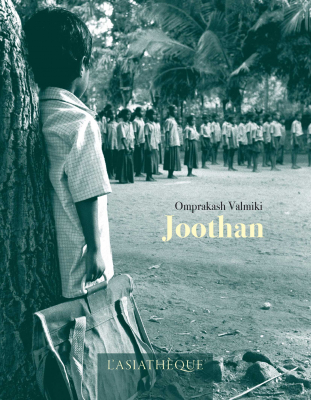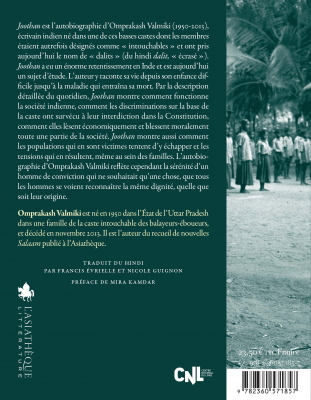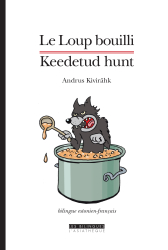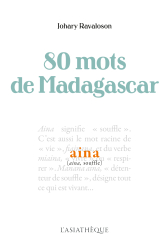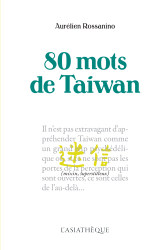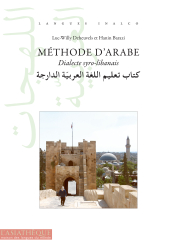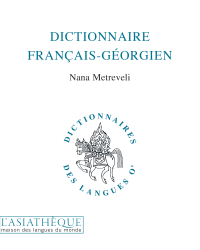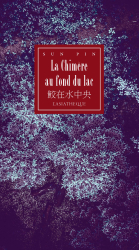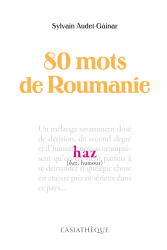Details
Format: Paperback
ISBN: 9782360571857
Collection: Monde indien
14 x 18 cm
Weight: 462 gr
Pages: 432
First publication: 03/10/2018
Last printing: 09/2018
Joothan
Autobiographie d'un intouchable
Translation: Nicole Guignon, Francis Évrielle
Preface : Mira Kamdar
The social awakening of an untouchable against omnipresent domination still relevant today.
Joothan is the autobiography of Omprakash Valmiki (1950-2013), an Indian writer of lower caste birth whose members were formerly referred to as "untouchables" and have now taken the name "dalits" (from the Hindi dalit , " crushed "). Joothan has had a huge impact in India and his work is the subject of much academic study today. The author recounts his life, from his difficult childhood until the illness that led to his death. Through a detailed description of everyday life, Joothan paints a picture of Indian society, how discrimination based on the caste system managed to survive despite having been prohibited by the Indian Constitution, and its economic and moral impact on a large part of modern Indian society. Joothan also describes the attempts of the affected populations to try to escape from the caste system and the tensions resulting from this, including within the family sphere. Yet, the autobiography of Omprakash Valmiki also reflects the serenity of a man of conviction who only wish for one thing, that all men be recognized with the same dignity, regardless of their origin.
PRESS REVIEW
« ... Valmiki nous offre ainsi un livre politique, son livre cri, pleure, tremble. S’il cite autant de noms, c’est pour leur rendre hommage ou pour régler ses comptes. ... »
Indian literature: "Untouchable" and proud of it
"... While anecdotes of discrimination and violence abound, Valmiki's autobiography is by no means Manichean. For example, he recounts with wonder how in his native village, when he was the first student from the Dalit district to obtain his graduation diploma, a high caste man came to congratulate him ... "
Omprakash Valmiki, Dalit writer
"... The autobiography is poignant and it is difficult to let go of the story ..."
Joothan, autobiographie d'un intouchable
"... To read this author today is to support injustice, to counter the plight of thousands of Indians who suffer from this discrimination, but it is also not to give up or forget all those who in the world suffer such suffering ... "
CONTRIBUTORS' BIOGRAPHIES
Omprakash Valmiki
Omprakash Valmiki, was born in 1950 in the state of Uttar Pradesh in a family of the untouchable caste of sweepers-garbage collectors, and died prematurely in November 2013. He has asserted himself since the 1990s as one of the authors most important Hindi-speaking Dalits of his generation. Author engaged in social, political and economic fields for the emancipation of the oppressed, regularly published in various literary magazines as well as in academic journals, he has written poetry, short stories and essays. He also wrote a history of the valmiki community (name adopted by members of the garbage collection community in the years 1920-1930). He is the author of the autobiography Joothan, published in the Asian Library with this book.
Mira Kamdar

Through her father, a native of Gujarat, Mira Kamdar has India in her blood. World-renowned expert on India and author of several books on this country, including Motiba's Tattoos: A Granddaughter's Journey from America into her Indian Family's Past (Public Affairs, 2000; Plume, 2001) and Planet India, the turbulent ascension of a democratic giant (Actes Sud, 2008), she was a member of the editorial board of the New York Times responsible for writing on international affairs from fall 2013 to the end of 2017. Perfectly French-speaking, she is also the author of '' a thesis on Diderot, supervised by Philippe Lacue-Labarthe. Languages, turns of phrase and the sedimentation of meaning that words accumulate over time have always preoccupied him. American by birth, she has lived in France since 2010.
(photo © Tomas Van Houtryve)
TABLE OF CONTENTS
Préface de Mira Kamdar (Preface by Mira Kamdar)
Introduction à l’édition de 1997 (Partie I) (Introduction to the 1997 edition)
Carte de l’Inde (Map of India)
Note liminaire sur les transcriptions, les notes et les renvois au glossaire (Introductory note on transcripts, notes and glossary references)
Première partie (Part One)
1. Barla 1950-1966
Le village – Premières années d’école – Souffrances dues à la caste – Début des études secondaires – Échec en fin de classe 12
arbre généalogique familial (The village - First years of school - Caste-based suffering - Beginning secondary school - Failing Class 12 - Family tree)
2. Dehradun 1966-1968
Poursuite des études secondaires – Découverte de l’engagement
politique, d’Ambedkar et du terme « dalit » – Interruption des études pour passer à une formation technique (Continuing secondary education - The discovery of political engagement, from Ambedkar to the term "dalit")
3. Jabalpur 1968-1970
Formation de deux ans à l’usine de Khamarya – Découverte du monde littéraire (Two years of training at the Khamarya factory - Discovering the literary world)
4. Bombay 1970-1972
Institut de formation d’Ambarnath – Institut de formation de Chandradhar (Ambarnath Training Institute - Chandradhar Training Institute)
5. Chandrapur 1972-1985
En poste à l’usine de munitions de Chandrapur – Mariage (1973) – Difficultés de logement – Travail social parmi les dalits – Rencontres (Stationed at the Chandrapur munitions factory - Marriage (1973) - Housing difficulties - Social work among Dalits - Encounters)
6. Retour à Dehradun 1985
Transfert à l’usine d’armement de Dehradun – Réflexions sur le nom de Valmiki et la condition des dalits (Transfer to the Dehradun armament factory - Reflections on the name Valmiki and the condition of Dalits)
Deuxième partie (Part Two)
1. Dehradun 1985-1998
Difficultés de relations au sein du service – Problèmes de logement – Drame chez les ouvriers – Théâtre – Appendicite de Sanjay – Poèmes publiés – Parution des onze pages préliminaires de l’autobiographie (1994) (Relationship difficulties within the service - Housing issues - Drama among the workers - Theatre - Sanjay's appendicitis - Published poems - Publication of 11 preliminary pages of the autobiography in 1994)
2. Jabalpur 1998-2001
Transfert à l’usine de fabrication de véhicules militaires (G.C.F.) – Affectation au service de l’entretien – Rencontres – Transport du cadavre d’un boeuf – Difficultés au sein du service – Affectation au département d’assemblage des tanks – Composition obligée de chansons – Exploit technique – Demande de mutation à Dehradun (Transfer to the military vehicle manufacturing plant - Assignment to the maintenance department - Meetings - Transporting the corpse of an ox - Difficulties within the department - Assignment to the tank assembly department - Compulsory songwriting - Technical operation - Request for transfer to Dehradun)
3. Dehradun 2001-2013
Affectation à l’O.L.F. (Opto-Electronics Factory) – Maladie de Chanda – Achat d’une maison et emménagement (Assignment to the O.L.F. (Opto-Electronics Factory) - Chanda's illness - Buying a house and moving)
4. Shimla et Delhi 2013
Des liens tissés en plein drame : Départ pour six mois de résidence à l’Indian Institute of Advanced Studies en tant que chercheur invité – Début de la maladie – Diagnostic – Opération chirurgicale à Delhi – Gratitude (Bonds forged in the midst of drama: Leaving for a six-month residency at the Indian Institute of Advanced Studies as a visiting scholar - Onset of illness - Diagnosis - Surgery in Delhi - Gratitude)
Glossaire (Glossary)
Index des noms de personnalités citées (Index of the names of people cited)
